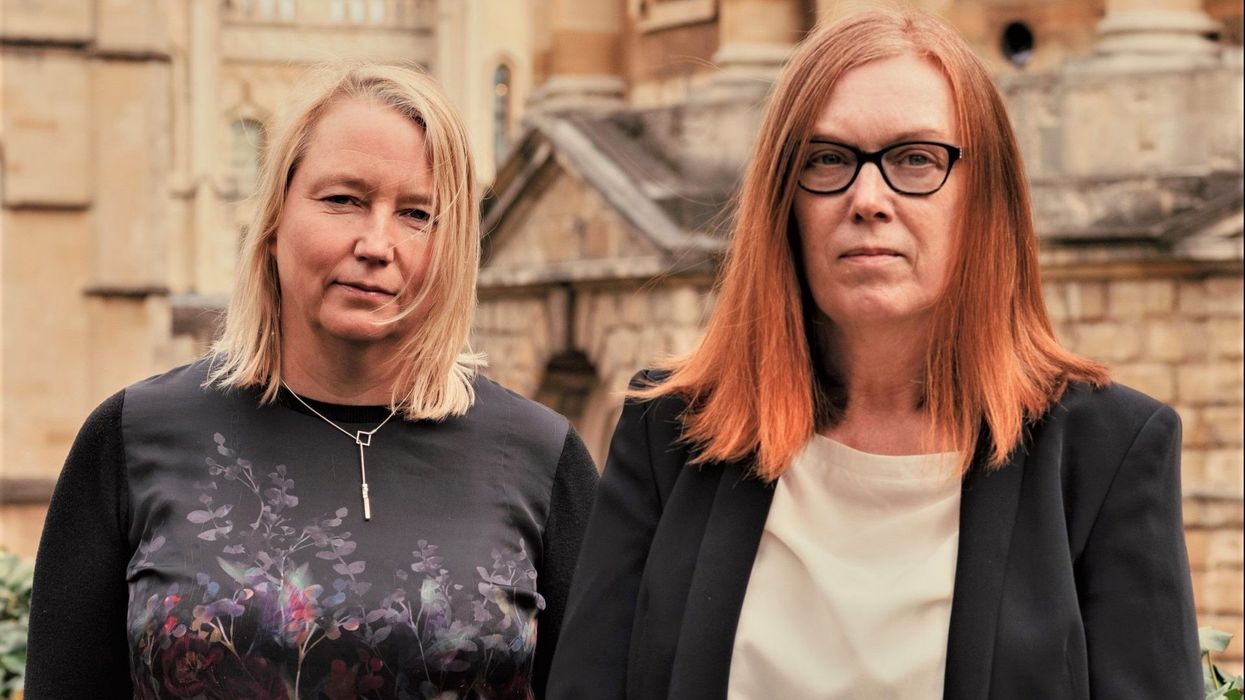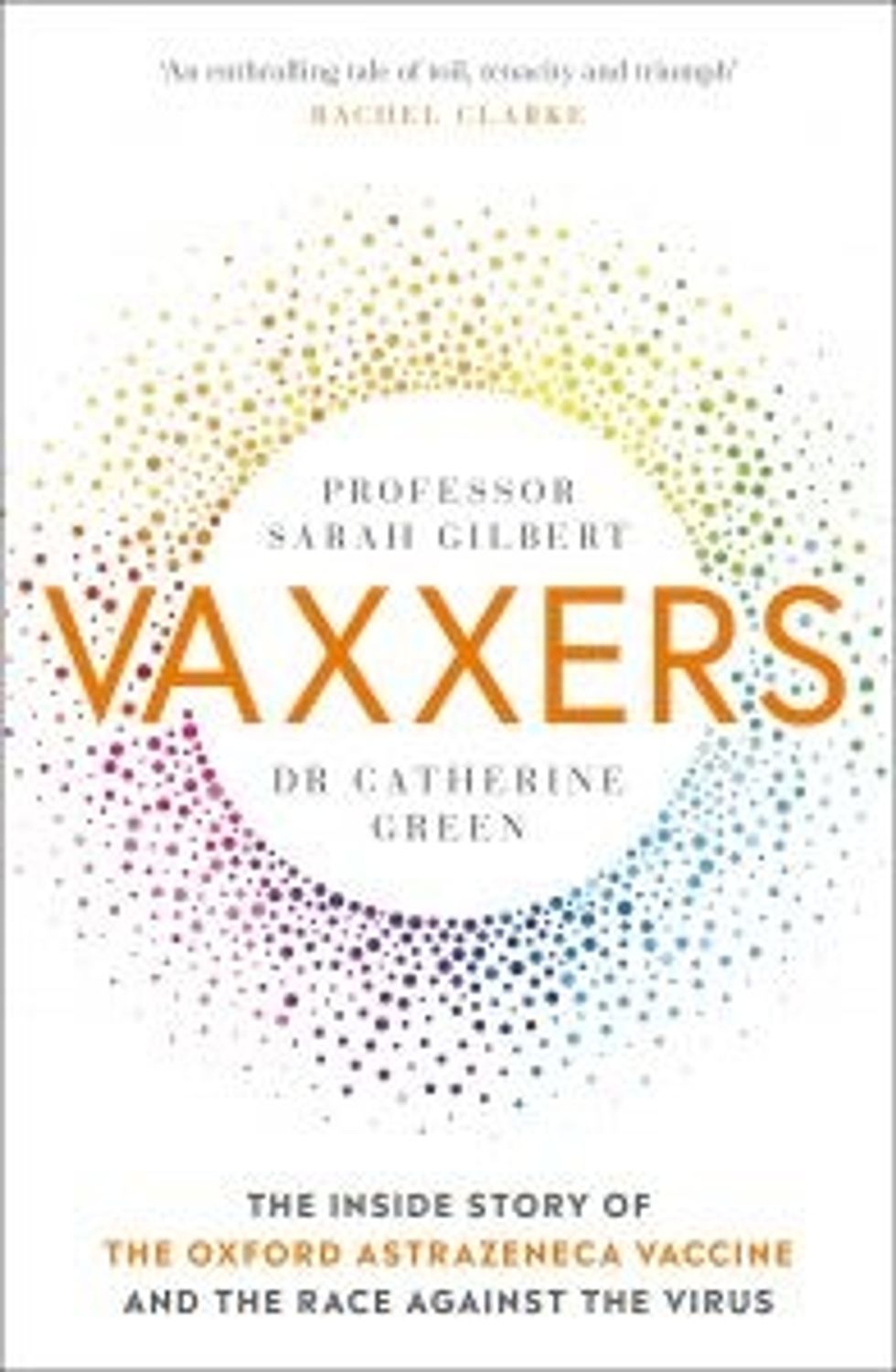VAXXERS: The Inside Story of the Oxford AstraZeneca Vaccine and the Race Against the Virus is a truly wonderful book about the design and development of the life-saving vaccine by two women who write their respective chapters as “Sarah” and “Cath”.
This is a must-read book for the British Asian community and for people in India, where 432,000 to date have died from Covid-19, according to the government, although the actual toll, calculated by the Center for Global Development and Harvard University, is closer to five million.
Of the co-authors, Sarah Gilbert is “professor of vaccinology at the Jenner Institute within the University of Oxford. Having devoted her career to developing vaccines against infectious diseases, since January 2020 she has been the Oxford project leader for the Oxford AstraZeneca vaccine. She has more than 25 years of experience in the design and early development of new vaccines, and a commitment to increasing public understanding of science.”
Meanwhile, Dr Catherine Green is “associate professor of chromosome dynamics at the Wellcome Centre for Human Genetics, a senior research fellow at Exeter College, and head of Oxford University’s Clinical BioManufacturing Facility. As a specialist in manufacturing vaccines for clinical trials, she is an integral part of the Oxford Vaccine project.”
This is also a very human story. Sarah and Cath are both mothers.
Sarah writes: “I hadn’t seen my son since September (2020). Almost twenty years earlier, I had given birth to triplets, becoming a mother of three children within the space of sixteen hours, and now having one of my children away from home in such difficult circumstances left me with an underlying sense of tension. I found myself checking the Covid case numbers for Bath, where he was living, every day.”
She recalls: “On New Year’s Day 2020, I was sitting at my desk at home, going through my work emails and browsing a few news websites. I checked in with ProMedMail, a site that reports on disease outbreaks around the world, and something caught my attention. There were reports of ‘pneumonia of unknown cause’ in Wuhan, China. Four cases with high fever and pneumonia, not responding to antibiotics.”
Her co-author says: “I’m just Cath, a lighterman’s (a worker who operates a type of flat-bottomed barge) daughter, doing my best with the knowledge I have and the people I work with, and missing hugging my parents like everyone else.”
She reveals her personal heartbreak: “I threw a New Year’s Eve party at my house to mark the end of 2019… it was a bittersweet evening for me. My husband had left me a few months earlier and I was still angry and hurt and a bit fearful of what 2020 would bring, but a night of fun with my friends made me feel loved and alive, although very hungover the next day… No one mentioned a new virus in Wuhan, China.”
Sarah comments: “We are two ordinary people who, with a team of other hard-working, dedicated people, did something extraordinary. We don’t have cleaners, or drivers, or nannies, and like everyone else we have other things going on in our lives.”
In their book, the authors write how the Serum Institute of India was brought into the picture. Sarah says: “We had designed the vaccine in a few days in January (at that point, on a just-in-case basis); made the first batch in a record-breaking sixty-five days as it had become clearer that a vaccine would be needed; tested it on volunteers in four continents as the virus rampaged across the planet; and manufactured millions of doses.”
She goes on: “By mid-April everything was in place to make our vaccine at scale; the production instructions or recipe, the starting material, the production cells, the funding, and a group of manufacturers to work with.”
The Serum Institute of India had been brought “on board” by Dr Sandy Douglas, who holds a Wellcome Trust Postdoctoral Fellowship for Clinicians, and by Adrian Hill, the Lakshmi Mittal and family professor of vaccinology and director of the Jenner Institute at Oxford.
Sarah points out: “The SII are the world’s biggest vaccine manufacturer. Their involvement would make it possible to produce enough vaccine not just for the UK but for the whole world, and irrespective of a country’s ability to pay.”
According to Cath, once production had started, “the Serum Institute in India started supplying vaccines through the region, including to Myanmar, Bangladesh and Nepal”.
Sarah also gives her views on anti-vaxxers and vaccine hesitancy. “I don’t understand anti-vaxxers,” she says bluntly. “Why would anyone be ideologically opposed to a safe and cost-effective public health measure that saves millions of lives and stops people from having to live with long-term disabilities that can be caused by diseases such as polio and smallpox – and, it seems, Covid-19?
“Vaccine hesitancy, however, is a different matter. It is natural that people want to understand the risks and benefits of vaccines, and important that we as scientists engage with their concerns.
“There is lower take-up of Covid vaccines amongst people from some ethnic minority backgrounds. The reasons are complex and it is important not to be simplistic in assigning reasons for vaccine hesitancy to large and diverse groups of people. However, in a review of vaccine acceptance in the UK, one of the concerns raised was that vaccines might not have been tested in people from different ethnic minorities, leading to fears that vaccines had been developed for one ethnic group and might not be safe or effective for others. It is important, for that reason, that clinical trials of vaccines do include people from a range of different ethnic backgrounds. This was addressed in the SARS-CoV-2 vaccine trials that took place in 2020 and 2021.”
The authors stresses scientific achievement is a collaborative process.
Sarah explains: “This is the story of a race. Not, as it has so often been portrayed, a race against other scientists making other vaccines… Instead, it was a race against the devastating virus that took millions of lives, ruined livelihoods, emptied schools, kept us apart from people we loved and closed down entire societies. It was a race that, even as the world locked down in the first few months of 2020, we had in some ways already lost. It is a race we are still running, as mutant variants threaten to ‘escape’ the vaccines and treatments we have developed to bring the pandemic under control. And, if and when we do cross the finishing line, sadly there will not be much time for celebration. We will already be in training for the next one.”
She emphasises: “We hope we never sound as though we think we did what we did on our own. It was a collaborative effort by an international network of thousands of heroes – dedicated scientists in Oxford and across four continents, but also clinicians, regulators, manufacturers, and the brave volunteers who offered up their arms for us, and week after week stuck cotton buds down their throats.”
Working to combat the outbreak of Ebola in Africa in 2014 was valuable. “These experiences formed the foundations of what we’ve done in Oxford – because of what happened with Ebola, learning what worked well and what did not, we were able to design and test a vaccine with unprecedented speed and with high levels of confidence in the outcome,” observes Sarah.
Aged 59, Sarah reveals she herself had to wait her turn to receive her jabs as she was not in a priority group.
What next?
Cath says: “The story isn’t over yet. The ending has not been written. But we have come a long way towards beating the virus and I would like people to know how we really got here and what happens next: how we get out of this mess, and how we prepare for the inevitable next one.
She also warns: “Disease Y is coming. There will be a next time. It is inevitable.”
Vaxxers: The Inside Story of the Oxford AstraZeneca Vaccine and the Race Against the Virus, by Professor Sarah Gilbert and Dr Catherine Green, is published by Hodder & Stoughton; £20.





